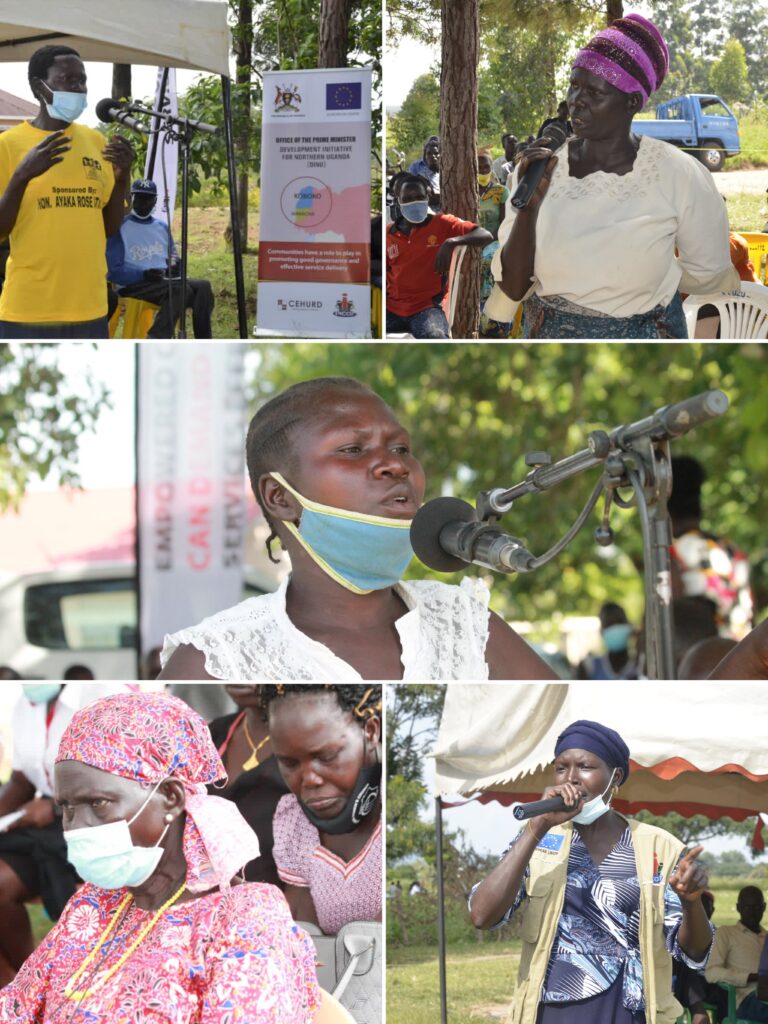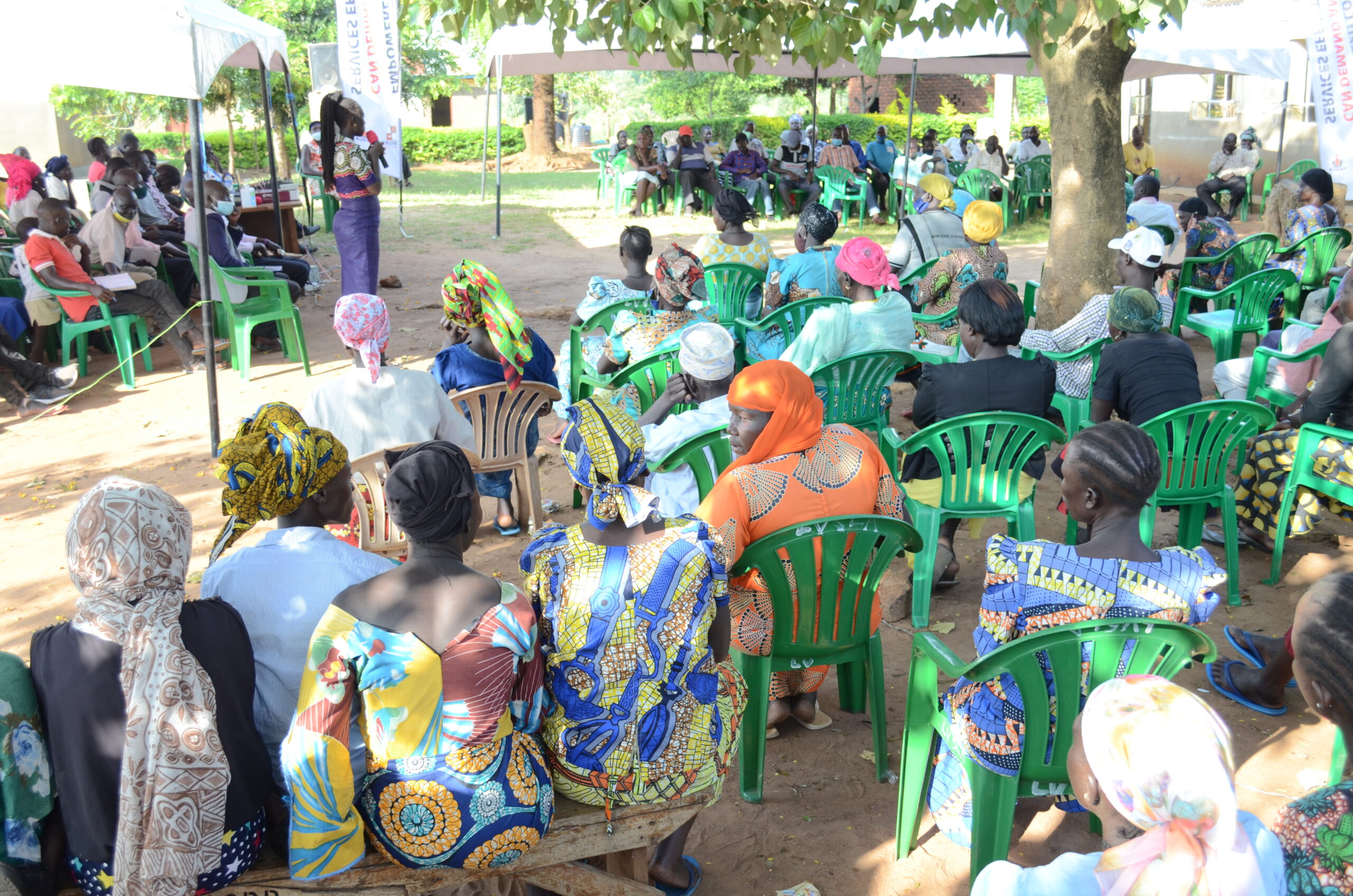CEHURD) with Partners in Community Transformation (PICOT) are implementing a two-and-a-half year Action in the districts of Koboko and Maracha, under the Development Initiative for Northern Uganda (DINU) with support from the European Union through the Office of the Prime Minister. This Action is titled “Integrating Legal Empowerment and Social Accountability for improved local government performance and governance (LESA Action)”.
Since the implementation of this project, considerable gains have been registered across the two districts of Koboko and Maracha; the continuous sensitization and dialogues in the last two years have had a great impact on the mindset change of the community towards community participation. The principle of participation as a tenet of governance is important because communities are far more attuned to what they need for their development, which helps them build and improve their confidence.
Community members have a role to play in lower planning and budgeting as stakeholders, taxpayers and end-users of all government services. Community participation paves way for self-development and contribution because it not only provides valuable local insight but also instills a level of accountability. With information, it becomes easier for communities to detect instances of resource mismanagement and corruption.
Gender mainstreaming is a public policy perspective and practice that entails assessing and including the concerns, experiences and different implications for people of different genders in any planned policy action, including legislation and programmes, in all areas and levels so that women and men benefit equally and inequality is not perpetuated (adapted from the United Nations Economic and Social Council (ECOSOC), July 1997). The achievement of gender equality and empowering all women and girls is one of the Sustainable Development Goals (SDG 5).

The Legal Empowerment and Social Accountability (LESA) intervention has registered great improvement towards improving community participation and involvement in governance at the lower local government planning process in the two districts of Koboko and Maracha. This has been registered as a result of the continued sensitizations and engagements conducted that have empowered communities to participate actively. Women’s participation in the region has been low given the cultural and social norms surrounding women participation which undermine women’s involvement.
As we celebrate #InternationalWomen’sDay2022, the LESA Action has been able to register a great improvement in women’s participation in the last two years. The realization of gender participation in planning and budgeting is a strong precursor of achieving equitable community participation and budgeting and transformative development.
Compiled by the CEHURD DINU-LESA Team.

